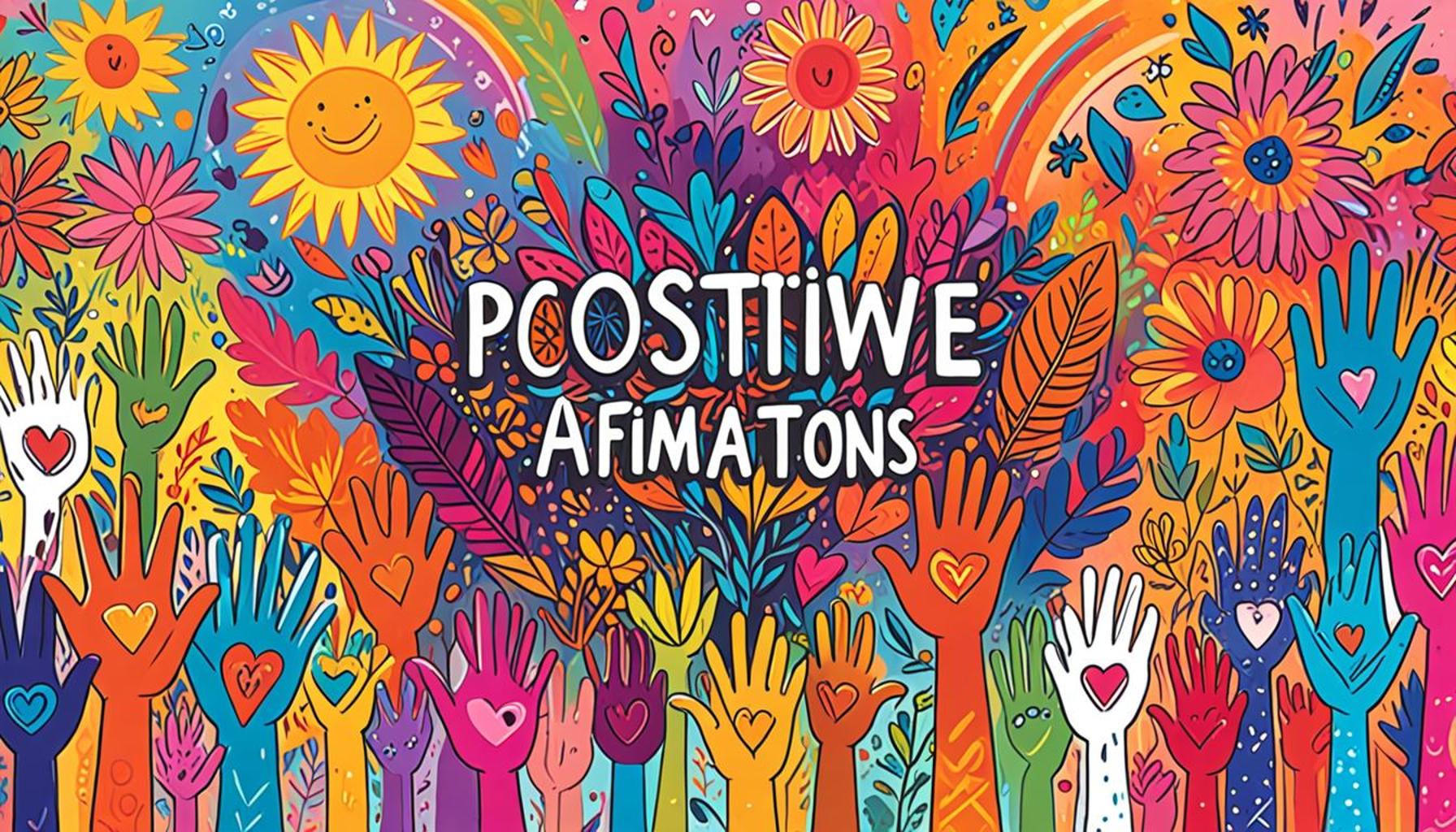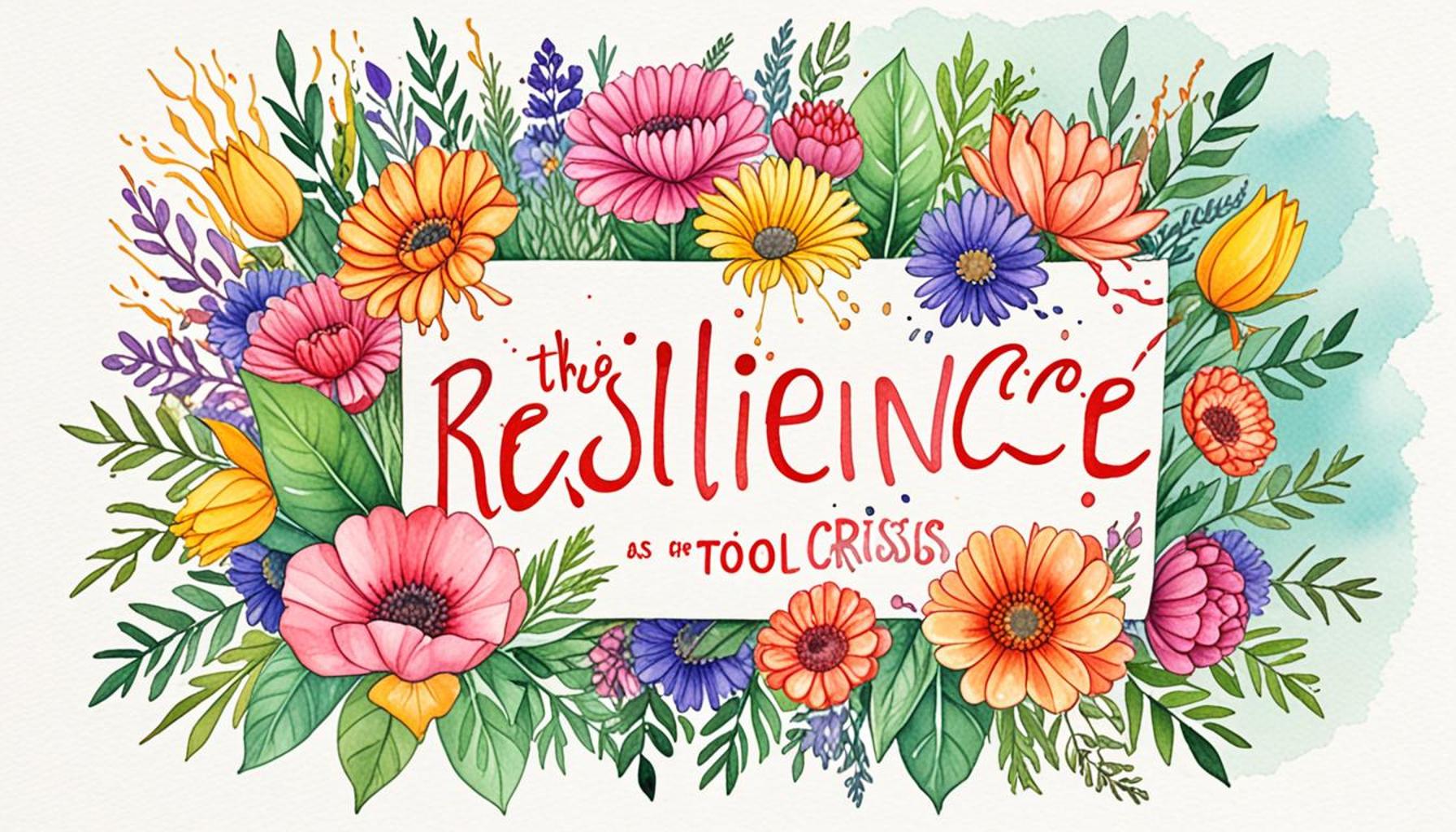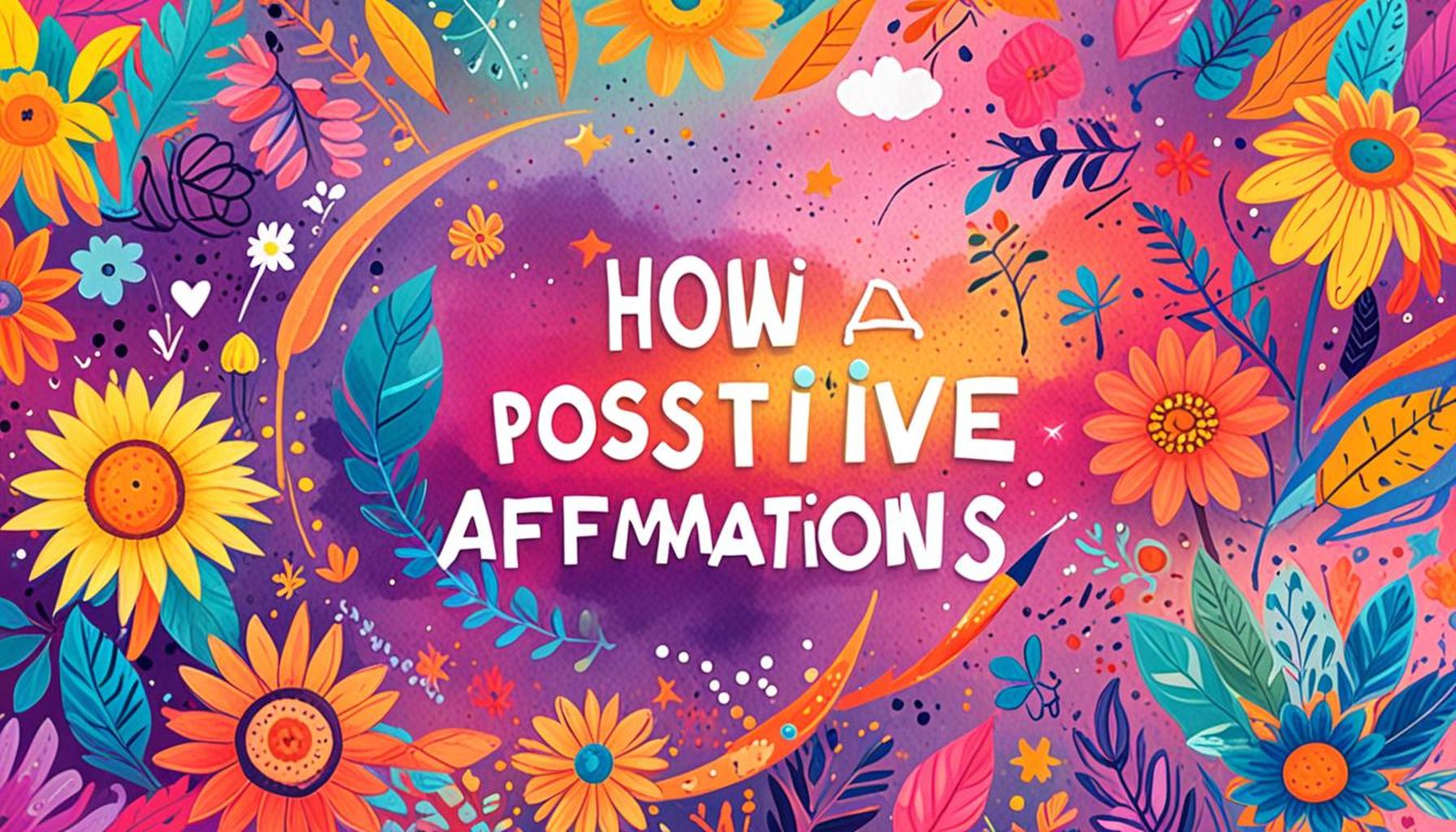The Impact of Positive Affirmations on the Resilience of Community Groups

Challenges Faced by Nigerian Communities
Across Nigeria, community groups are grappling with a myriad of unprecedented challenges. From economic instability that affects livelihoods to social unrest fueled by political tensions, the need for resilience has never been more pronounced. Communities often struggle to maintain a sense of unity and purpose amid these obstacles. In this context, integrating positive affirmations within community practices is emerging as a powerful tool for enhancing resilience and fostering a spirit of togetherness.
The Power of Positive Affirmations
Positive affirmations are simple yet profound statements that encourage and uplift individuals, serving as verbal expressions of belief in personal and communal strength. These statements promote a mindset centered on self-worth and the inherent capacity to overcome challenges. When embraced collectively, they can lead to significant changes in group dynamics. The effects of positive affirmations manifest in various ways, including:
- Boosting morale in group settings, creating an environment where members feel valued and confident.
- Encouraging collaboration among members, as positive reinforcement can help to dissolve barriers and foster teamwork.
- Creating a positive group identity that fosters belonging, allowing individuals to connect on a deeper level with their community.
Concrete Examples of Positive Affirmations in Action
Real-life examples from Nigerian communities illustrate the powerful impact of positive affirmations on resilience. In regions affected by conflict, such as the Northeastern states, community groups have successfully used affirmations to foster unity and hope amidst adversity. For instance, women’s cooperatives in these regions often come together to recite affirmations that inspire them to rebuild and support one another. This practice not only rekindles their spirit but also fosters:
- Increased emotional strength to confront adversity, helping individuals cope with trauma and loss.
- Heightened motivation to pursue common goals, from economic development projects to peace-building initiatives.
- A shared vision that transcends individual struggles, uniting members in their quest for stability and growth.
The Journey Towards Resilience
As we delve deeper into the connection between language and resilience, it becomes clear that the words we choose to affirm play a critical role in shaping our communities. Implementing positive affirmations can cultivate a more resilient community spirit, enabling groups to face challenges head-on with a renewed sense of hope and determination. This transformative potential is particularly relevant for Nigerian communities, where the power of collective strength continues to shine through even the toughest of times. Join us in uncovering how embracing positivity can lead communities toward a brighter, more resilient future.
SEE ALSO: Click here to read another article
Nurturing Growth through Language
The act of using positive affirmations within community groups is not merely a trend; it represents a strategic approach to fortifying resilience in the face of adversity. Language plays a pivotal role in how we perceive our collective challenges. In Nigeria, where communities are often confronted with difficulties ranging from economic downturns to social upheavals, the practice of repeating affirmations can foster an uplifting atmosphere that nurtures growth and empowerment.
When members of a community come together to engage in affirmations, they not only express a shared belief in their capabilities but also create a sanctuary of support. This simple yet transformative practice can lead to various positive outcomes, including:
- Enhanced emotional cohesion, allowing members to share their challenges openly, fostering empathy and understanding.
- Improved coping strategies in dealing with life’s uncertainties, as the affirmations reshape individual perspectives toward opportunities rather than obstacles.
- A sense of belonging that motivates community members to contribute actively, enriching the group’s dynamics and collective goals.
In regions such as the Niger Delta, local groups have harnessed positive affirmations to transform the narrative surrounding environmental struggles. As communities face challenges from oil spills and pollution, groups frequently gather to articulate affirmations reflecting strength and sustainability. These statements not only acknowledge their plight but also instill a vision for a restored environment, promoting:
- Active participation in grassroots movements aimed at environmental conservation and rehabilitation.
- Collective advocacy for government policies that support sustainable practices and protect local livelihoods.
- Renewed hope for future generations as members work together to create a legacy of resilience.
The amalgamation of affirmations into the fabric of community life leads to tangible changes. Research indicates that communities incorporating positive language experience a profound shift in their outlook, which is critical during trying times. For instance, community organizations in Lagos have adopted weekly affirmation circles where members vocalize their hopes, ambitions, and strengths. The ripple effect of these gatherings extends beyond personal growth; they strengthen the entire group’s resolve to confront challenges collaboratively.
As we examine the profound implications of incorporating positive affirmations into the dynamics of community groups, it becomes evident that these practices not only elevate individual spirits but also weave a powerful narrative of resilience and unity. For Nigerian communities, the journey toward a cohesive and thriving future is bolstered through the intentional use of language that uplifts and connects. This is just the beginning of understanding how affirmations can act as a pillar for enduring strength and solidarity.
The Impact of Positive Affirmations on the Resilience of Community Groups
In recent years, the connection between positive affirmations and community resilience has garnered increasing attention from researchers and community leaders alike. Positive affirmations are simple statements that can help change one’s thought patterns and create a more positive outlook on life. When implemented at a community level, these affirmations can foster a supportive environment that enhances collective strength and adaptability.
One significant aspect of the impact of positive affirmations is their ability to improve mental wellbeing among community members. By encouraging individuals to express positive self-views, communities can reduce overall anxiety and stress levels. This phenomenon is particularly important for groups who may face external pressures or challenges, as it helps cultivate a stronger sense of unity and purpose.
Moreover, positive affirmations can act as a potent tool for building self-efficacy within community groups. When members affirm their strengths and capabilities, they become more empowered to tackle challenges together. Studies have shown that groups who regularly engage in affirmations report higher levels of resilience, being able to adapt to adversities while maintaining a positive perspective.
Additionally, incorporating positive affirmations into group activities can create a culture of appreciation and acknowledgment. This practice not only boosts individual morale but also strengthens interpersonal connections, reminding members of their unique contributions. As a result, the sense of belonging within a community is heightened, enabling groups to thrive even in adverse conditions.
As we delve deeper into the implications of positive affirmations, it becomes increasingly clear that they serve as a transformative element in enhancing the resilience of community groups. The integration of such affirmations into community programs can lead to a more engaged, optimistic, and adaptable populace, ready to face the challenges of today’s world.
| Category | Advantages |
|---|---|
| Mental Wellbeing | Helps reduce anxiety and stress among community members. |
| Empowerment | Fosters a stronger sense of self-efficacy and collective strength. |
| Social Cohesion | Encourages appreciation, leading to closer interpersonal relationships. |
Overall, the integration of positive affirmations within community initiatives appears to be a promising strategy for enhancing resilience and fostering well-being in the face of challenges. The ripple effects of these affirmations extend beyond individual benefits, positively influencing the entire community’s dynamics.
SEE ALSO: Click here to read another article
Empowerment Through Collective Voice
The integration of positive affirmations within community groups extends beyond individual growth and emotional support; it serves as a catalyst for collective empowerment. The power of shared language resonates deeply in Nigerian communities where unity is often the linchpin for overcoming sociopolitical challenges. When members of a community come together to affirm their beliefs, they generate a powerful collective voice that can advocate for change and resilience.
Research has shown that communities using affirmations develop a strong sense of identity, which directly correlates to their ability to influence their surroundings. For instance, in various northern states of Nigeria, community-driven initiatives have utilized affirmations to combat issues like illiteracy and gender inequality. By vocalizing statements such as “We are knowledgeable and capable,” members foster a culture where education and empowerment become attainable aspirations. This communal approach solidifies a mindset geared toward growth and improvement.
The practice also extends into the realm of social activism. Groups in urban centers like Abuja have leveraged positive affirmations to bolster unity amidst political unrest. Through weekly meetings, citizens affirm their rights and visions for a just society, creating a framework for collective action. This vocalization of aspirations serves multiple purposes:
- Building solidarity around shared goals fosters collaboration and resource-sharing, critical in resource-limited settings.
- Encouraging resilience in light of political or economic instability, as community members remind each other of their shared purpose and strength.
- Attracting external support as organizations and governmental bodies become aware of the cohesive objectives and aspirations expressed by united groups.
Additionally, the role of technology in amplifying these affirmations cannot be understated. Social media platforms have become vital avenues for community groups to disseminate their affirmations to a broader audience. Local leaders in states like Cross River have effectively employed digital platforms to share affirmations that inspire action against climate change, thereby uniting voices not just within but across borders. The phrase “Together, we can restore our lands” reverberates online, mobilizing support and actual change in the fight against environmental degradation.
Moreover, educational institutions have begun to integrate the concept of positive affirmations into their curricula, highlighting the importance of resilience training at an early age. Schools across Lagos and Ibadan have introduced programs where students recite affirmations promoting self-worth and collective responsibility. This instills a long-lasting sense of resilience that transcends the classroom, preparing students to lead community efforts as informed and empowered citizens.
The intertwining of positive affirmations with community dynamics provides a fertile ground for the cultivation of resilience and advocacy. When individuals affirm not just their capabilities but their communal identities, they create stronger networks capable of tackling a myriad of societal issues. The road ahead for Nigerian communities is increasingly paved with the powerful language of unity and empowerment, encouraging further exploration into the intricate relationship between affirmation, resilience, and societal change.
SEE ALSO: Click here to read another article
Fostering Community Resilience Through Affirmation
In conclusion, the transformative potential of positive affirmations within community groups is substantial, catalyzing both individual growth and collective resilience. By weaving affirmations into the fabric of community interaction, groups across Nigeria are redefining their identity and channeling their strengths toward shared goals. The practice of vocalizing empowering statements not only reinforces individual self-worth but also cultivates a profound sense of belonging and unity, essential in confronting societal challenges.
The ongoing efforts seen in various regions, from the grassroots initiatives combatting illiteracy to the digital mobilization against climate change, exemplify the widespread impact that affirmations possess. These acts of collective affirmation serve not only to inspire action but to attract attention from external allies, amplifying voices that might otherwise go unheard. As community members gather to affirm their rights and aspirations, they build a framework of solidarity that can weather political and economic storms.
Furthermore, integrating affirmations into the educational sphere promises to equip future generations with the resilience and confidence needed to tackle social issues head-on. As students learn to embrace their potential and assume responsibility within their communities, they lay the groundwork for a proactive, empowered civic society.
Ultimately, the ongoing exploration of how positive affirmations can further strengthen community resilience is vital. By continually fostering dialogues that emphasize positivity and collective purpose, Nigerian communities can unlock new pathways for growth, advocacy, and lasting change. The journey ahead is an exciting one, with the promise of united voices driving towards a more resilient and equitable future.


